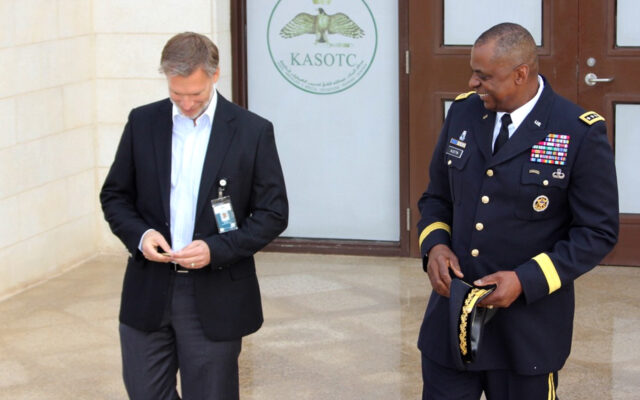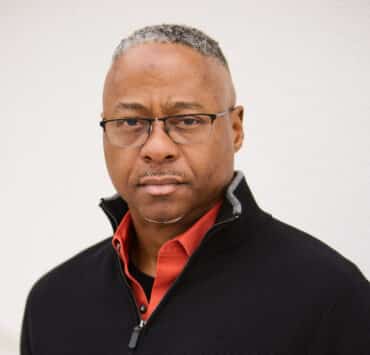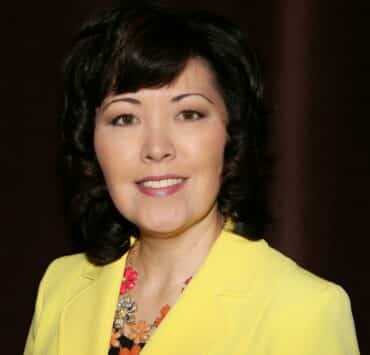| |
The USS Juneau exploded and sank after it was hit by a Japanese torpedo in 1941. Roughly 120 of the 700 men survived the explosion, but shark attacks and exposure to the elements whittled them down to just ten. The men were rescued eight days after the sinking. C.K. Redlinger’s uncle, Wyatt Butterfield, was among them and was instrumental in saving the group.
“On the 8th day, a US Navy plane flew over, saw the survivors, and dropped a package with some life-saving equipment, but it was out of reach,” says Redlinger. “At one point my uncle made a bold decision to volunteer to leave the life raft and swim for the package. As sharks closed in on him, he was able to return to the raft with the package, earning a Bronze Star for bravery in the process.”
His uncle’s account of survival, along with both of his parents being Marines, inspired Redlinger to embrace the concept of “stepping into the gap,” or being the first to welcome a challenge. It’s a concept that drove his successful career in the US Marine Corps, as a law enforcement officer in Atlanta, a military contractor, and his current role as VP of business continuity, corporate security, and real estate at Avantax.

“Stepping into the gap is the art of action-taking. It conditions us to be bold and decisive. As a young person, I tried to overcome fears by always volunteering to go first in a group setting. Whether it was being the first to give a briefing or the first to run an obstacle course, I’ve always seen it as an opportunity to be action-oriented,” he says. “Even though it’s scary and you might fail, you keep raising your hand. Before long, an audacious spirit becomes second nature and others will recognize this leadership quality and naturally want to elevate you..”
His journey began as an 18-year-old Marine Corps recruit at Parris Island in 1988. Though his early days in the military were challenging and riddled with fear, they instilled the discipline and leadership skills he’d need later as an assault team leader, explosive breacher, and close quarters battle instructor.
“The Marines are constantly trying to inoculate you against stress and chaos by introducing those elements into training., That conditioning bled over into other aspects of my life when adversity came knocking. It helped me understand that challenges were just the next adventure.”
“Stepping into the gap is the art of action-taking. It conditions us to be bold and decisive. As a young person, I tried to overcome fears by always volunteering to go first in a group setting. Whether it was being the first to give a briefing or the first to run an obstacle course, I’ve always seen it as an opportunity to be action-oriented.”
C.K. Redlinger
From 2004 to 2016, he joined the Global War on Terrorism as a military contractor, serving in Iraq and Jordan. There, he gained experience managing complex projects in remote environments. It was here that he was exposed to construction, supply chains, and logistics while building new training facilities for the US State Department’s Antiterrorism Assistance Program.
When he got back to the US, a friend from the Marines who worked at Avantax, a Texas-based financial services firm, called him to spearhead a plan to build a corporate security department. After successfully completing that project, his responsibilities expanded. He soon took charge of business continuity, real estate, and facilities teams.
“These were some new function areas I had never been responsible for,” he said. “It’s natural to feel out of your depth at first, but I had a long career at that point of stepping into the gap and knew that applying the same fundamentals would result in positive outcomes. I also surrounded myself with some really smart and resourceful action takers.”

As someone who has always needed meaning and purpose in his jobs, his role at Avantax fits him perfectly. That’s because Avantax has a culture of genuinely aiming to improve the lives of its clients “by helping them pursue their financial goals,” he says. “These are people trying to send kids to college, plan for retirement and, in some cases, create generational wealth. It’s a great feeling being so devoted to our financial professionals and CPAs who provide tax-focused financial planning to clients across America.”
Redlinger also feels responsible for building and maintaining cohesive teams, a value influenced by his military and law enforcement experience. That’s why he has team members from all the departments he leads do their planning together. He wants them to know each other’s challenges and lean on each other for help.
“When you have an executive leadership team that encourages that kind of culture, it breeds cohesion and builds trust and empathy from top to bottom.”
C.K. Redlinger
A great sense of comradery has ensued because of that, a benefit that’s helped influence company culture. “We had a devastating derecho storm in Iowa impact our employees there, and immediately our teams stepped into the gap,” he says. “They loaded trucks with generators, equipment, water, and food. Then, they made the trek from Texas to Iowa and helped them. We witnessed the same spirit of resiliency and teamwork during the historic Dallas Freeze and throughout the COVID-19 pandemic.”
“When you have an executive leadership team that encourages that kind of culture, it breeds cohesion and builds trust and empathy from top to bottom,” Redlinger says.


